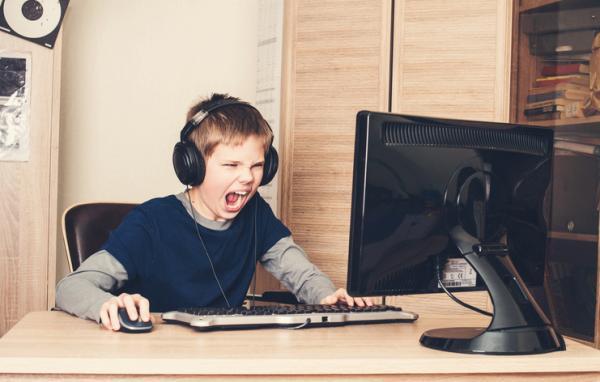Have you ever acted in a way you didn’t want when faced with discomfort? Do you feel that situations overwhelm you to the point of reacting impulsively? There are situations that generate very high stress and trigger responses that are considered incorrect within the framework of a society. It is possible that you have acted in a way that you had not previously thought about and you have been surprised by this.
This can generate various difficulties that affect daily life. Having tools to know how to control impulses can be beneficial and rewarding. Do you want to know more about this? In this PsychologyFor article, we will provide you with information about Impulse control disorder: what it is, symptoms, causes and treatment.
What is impulse control disorder
When we talk about impulse control disorder, we are referring to a clinical condition that is characterized by difficulty controlling emotions and behaviors in certain situations that generate nervousness, anguish, anxiety and/or stress.
What are impulse control disorders? According to the DSM-V(1)this disorder encompasses different pathologies in which impulses caused by certain emotions of the person are carried out. The differences between them lie in the ways in which these factors are carried out. Next, we will cite the impulse control disorders that are found within this group:
- Antisocial personality disorder.
- Gambling addiction.
- Onychophagia.
- Oppositional defiant disorder.
- Dermatillomania.
- Compulsive hoarder syndrome.
- Intermittent explosive disorder. Find out about the characteristics of this disorder in the following article about Intermittent Explosive Disorder: what it is, causes and treatment.
- Trichotillomania.
- Conduct disorder.
- Pyromania.
- Other specified disruptive, impulse control, and behavior disorder.

Symptoms of impulse control disorder
How do I know if I have impulse control disorder? This disorder has some manifestations that must be taken into account in order to detect it. The most relevant symptoms of impulse control disorder are the following:
- Lack of concentration. If you have this symptom, in this article, we show you exercises to improve your concentration
- Episodes of intense anger.
- Repetitive thoughts.
- Low self-esteem.
- Little tolerance to frustration.
- Lack of impulse control.
- Social isolation.
- Depression.
- Anxiety.
- Habit of lying.
- Robberies.
- Physical damage to the body.
Despite this description, it is important to understand that the diagnosis must be carried out by a health professional because he will be in charge of evaluating the clinical evolution of the patient taking into account his/her characteristics.
Causes of impulse control disorder
Now we know the symptoms that refer to this type of disorder, but what causes a lack of impulse control? It is important to understand the origin of this type of problem. Therefore, below, we will mention the main causes of impulse control disorder:
- Genetic factors : People who suffer from this type of difficulties usually have alterations in the neural connections linked to the regulation of emotions. Genetic inheritance and, therefore, the family play an important role here. To know more about it, you can consult the following article on Heredity and the environment in Psychology.
- Environmental factors : It is possible that the person has experienced certain situations that generated unpleasant sensations, both in thought and in the body. Because of this, it may happen that he has witnessed unpleasant moments in the past in which he did not know how to process anger and acted impulsively.
- Family influence : Upbringing also has a great influence on the regulation of emotions, since people have the tendency to imitate various behaviors that they have observed in their environment. In other words, if a family member has difficulties controlling impulses, this can be adopted as a pattern of behavior in life.

Impulse control disorder treatment
How to treat an impulse control disorder? Currently, there are treatments that are highly effective in addressing impulse control disorder and improving self-control. Faced with the appearance of the aforementioned symptoms, it is possible to carry out some alternatives that improve the prognosis of this type of disorder.
Psychological therapy
Therapy can help resolve different conflicts that appear throughout a person’s life. On the one hand, there are short-term therapies focused on resolution of objectives provide tools to deal with stressful and/or anxious situations in a different way, which can help in the treatment of impulse control disorder.
At the same time, they also work on learning to control impulses through managing emotions through interventions, such as recording thoughts and gradual exposure to stimuli that trigger these reactions.
On the other hand, long-term therapies attempt locate the origin in the past of the symptoms that afflict the person. This produces improvements in the way we deal with unpleasant situations.
Psychiatric medication
There are neurological factors that affect this disorder, so the use of a drug that acts on brain chemistry provides a positive effect to help the patient. In any case, the medication must be prescribed by a health professional Work together with a psychologist.
This article is merely informative, at PsychologyFor we do not have the power to make a diagnosis or recommend a treatment. We invite you to go to a psychologist to treat your particular case.
If you want to read more articles similar to Impulse control disorder: what it is, symptoms, causes and treatment we recommend that you enter our Clinical Psychology category.
- American Psychiatric Association. (2013). Diagnostic and Statistical Manual of Mental Disorders (DSM-V). Arlington: Panamericana Medical Publishing.
Bibliography
- Gómez-Járabo García, G., Rodríguez, E., Olavarrieta Bernardino, S. (2004). Assessment of the ability to act: impulse control. Health Research, 6 (1), 35-42.
- Páez Pérez, MF, Serrano Álvarez, M., Lorenzo Martínez, R. (2017). Impulse control disorder. Analysis of a multidisciplinary approach. I International Virtual Congress of Psychology.









